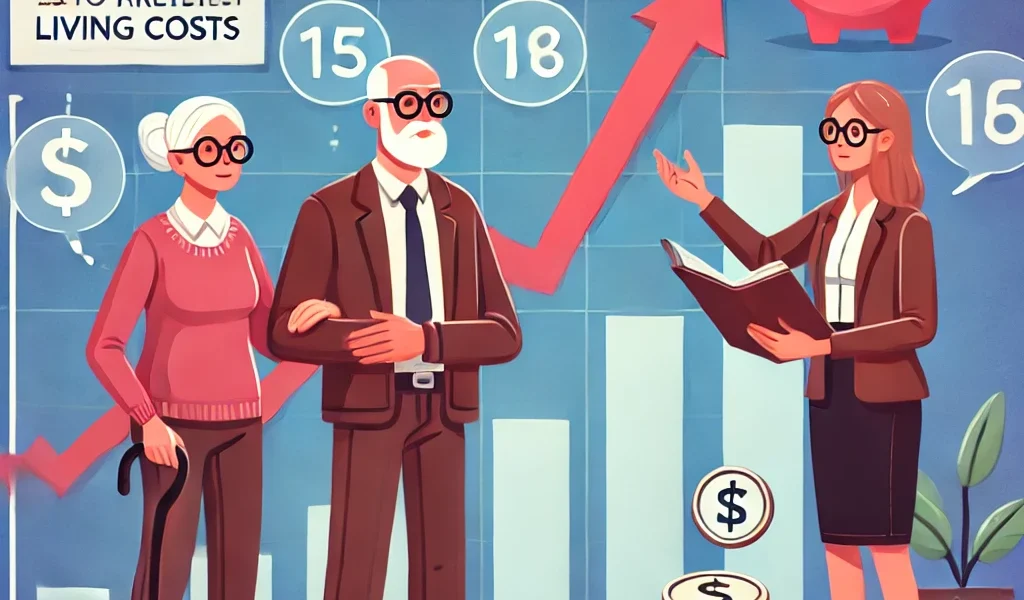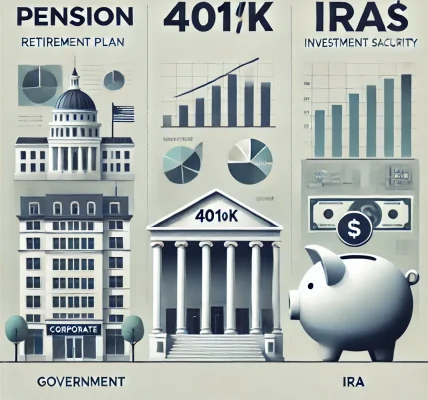Introduction
Inflation is a silent force that can erode the value of your retirement savings over time. While many people focus on accumulating a substantial retirement fund, few account for the impact of rising costs on their purchasing power. If not properly planned for, inflation can significantly reduce the effectiveness of your savings, making it difficult to maintain your desired standard of living during retirement.
In this article, we will explore how inflation affects retirement savings and provide strategies to safeguard your financial future against its effects.
Understanding Inflation and Its Impact on Retirement Savings
What is Inflation?
Inflation refers to the gradual increase in the prices of goods and services over time. It reduces the purchasing power of money, meaning that the same amount of money buys fewer goods and services in the future. Inflation is typically measured by the Consumer Price Index (CPI), which tracks the average price changes of essential goods and services.
How Inflation Impacts Retirement Savings
- Reduced Purchasing Power: As inflation rises, the cost of living increases. Without adequate financial planning, retirees may find their fixed incomes insufficient to cover their expenses.
- Longer Retirement Periods: With increasing life expectancy, retirees must ensure their savings last longer. Inflation can diminish their savings faster than expected.
- Impact on Fixed-Income Investments: Many retirees rely on pensions, annuities, and bonds, which may not keep pace with inflation. If these income sources do not offer adjustments for inflation, retirees may experience a decline in their real income.
- Healthcare Costs: Medical expenses tend to rise at a rate higher than general inflation. Without proper planning, healthcare costs can take a significant portion of retirement savings.
Strategies to Protect Retirement Savings from Inflation
1. Invest in Inflation-Protected Assets
Certain investment options can help counteract the effects of inflation: ✅ Treasury Inflation-Protected Securities (TIPS): These government-backed bonds adjust for inflation, ensuring that the principal and interest payments keep up with rising prices. ✅ Stocks and Equities: Historically, the stock market has provided returns that outpace inflation. Investing in a diversified portfolio of stocks can help grow wealth over the long term. ✅ Real Estate: Property values and rental income tend to rise with inflation, making real estate a hedge against inflation. ✅ Commodities (Gold & Silver): Precious metals and other commodities can retain value during periods of high inflation.
2. Delay Social Security Benefits
Social Security provides Cost of Living Adjustments (COLA) to help counteract inflation. By delaying benefits until age 70, retirees can maximize their monthly payouts, ensuring better financial security in later years.
3. Diversify Retirement Income Sources
To mitigate inflation risks, retirees should aim for multiple income streams: ✅ Pensions with Inflation Adjustments: If possible, opt for pension plans that include cost-of-living adjustments. ✅ Rental Income: Investing in rental properties provides an additional source of income that increases with inflation. ✅ Dividend Stocks: Companies that consistently increase dividends can help maintain purchasing power. ✅ Part-Time Work or Side Business: Some retirees choose to work part-time or start a small business to supplement their income.
4. Adjust Withdrawal Strategies
A safe withdrawal rate ensures that retirees do not run out of savings. The commonly recommended 4% rule may need adjustments to account for higher inflation rates. Retirees should consider flexible withdrawal strategies, such as:
- Withdrawing less during high inflation years.
- Adjusting spending based on portfolio performance.
- Using annuities for stable income.
5. Reassess and Rebalance Your Portfolio Regularly
Inflation can impact different asset classes in varying ways. Regularly reviewing and adjusting investments ensures that retirees maintain a well-balanced portfolio that can withstand inflationary pressures.
Common Mistakes to Avoid
🚫 Relying Too Much on Fixed-Income Investments: Traditional bonds and savings accounts often lose value against inflation. 🚫 Ignoring Healthcare Costs: Medical expenses can be one of the most significant financial burdens in retirement. 🚫 Not Accounting for Longer Life Expectancy: Many retirees underestimate how long their savings will need to last. 🚫 Failing to Diversify Income Sources: Depending solely on Social Security or pensions can leave retirees vulnerable to economic changes.
Conclusion
Inflation is an inevitable part of the economy, but it doesn’t have to derail your retirement plans. By understanding its impact and implementing smart financial strategies, you can safeguard your savings and ensure a comfortable, financially secure retirement.
To better prepare for inflation, consider working with a financial advisor to tailor a retirement plan that incorporates inflation-protected investments, diversified income sources, and effective withdrawal strategies. With proactive planning, you can maintain your purchasing power and enjoy the retirement lifestyle you’ve envisioned. 💰




